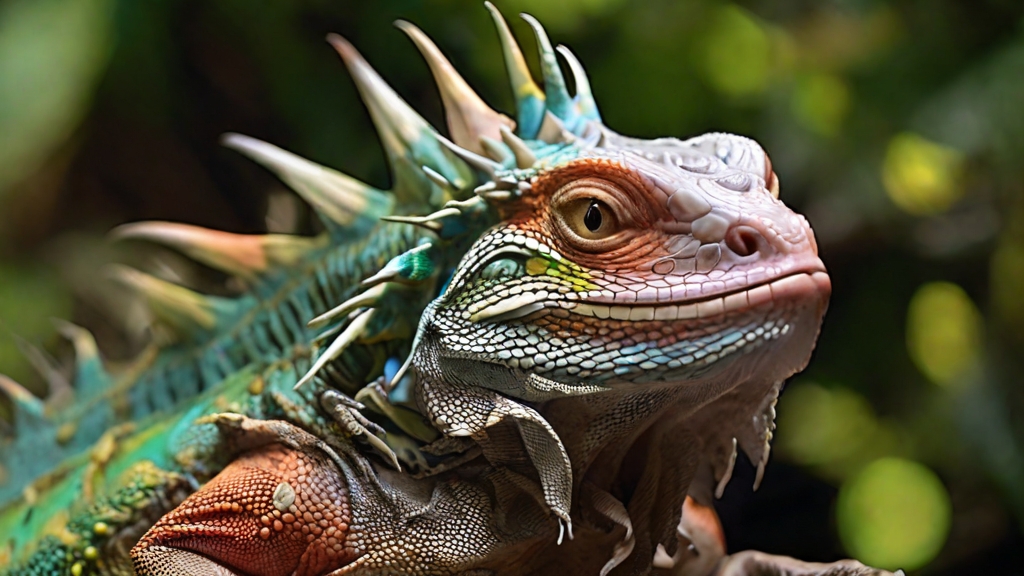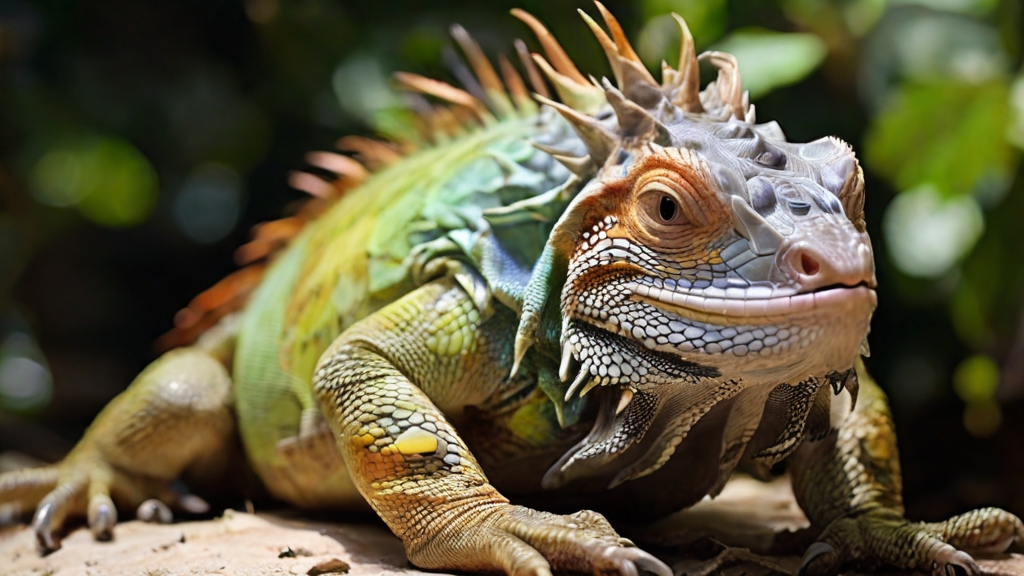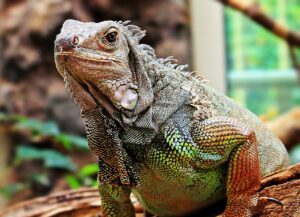Iguanas are fascinating reptiles that have gained popularity as pets over the years. These herbivorous creatures are known for their unique physical characteristics, including their long tails, dewlaps, and spines.
However, taking care of iguanas as pets requires a considerable amount of time, effort, and commitment. One of the essential aspects of iguana care is understanding their lifespan.
In this article, we’ll explore how long iguanas live as pets and the factors that affect their lifespan.
Brief Overview of Iguanas as Pets
Iguanas come in different species, each with its unique characteristics. Some of the commonly kept iguanas as pets include the Green Iguana, Red Iguana, Blue Iguana, and Desert Iguana.
These reptiles can grow to be quite large, with some species reaching up to six feet long. They are generally docile, but their temperament can change with age and environmental changes. Caring for an iguana requires a large enclosure, specialized lighting, and a strict diet.
Factors Affecting Iguana Lifespan
The lifespan of iguanas as pets depends on various factors, including their diet, environment, genetics, and care. A balanced diet that includes fruits, vegetables, and protein is crucial to the iguana’s health and longevity.
Similarly, providing a comfortable and spacious enclosure with proper lighting and temperature regulation is essential. Genetics also play a significant role in an iguana’s lifespan, as some species have a longer lifespan than others.
Lastly, providing regular veterinary care and proper hygiene can help prevent illnesses and extend an iguana’s lifespan.
Diet, Environment, Genetics, and Care
An iguana’s diet should consist of high fiber and low-fat foods, with a focus on leafy greens, fruits, and vegetables. Environmental factors like temperature and humidity should be monitored and controlled to ensure the iguana’s comfort.
Genetics also have a significant impact on an iguana’s lifespan, with some species living up to 20 years in captivity. Finally, providing proper care, including regular veterinary check-ups, and good hygiene practices, can help prevent diseases and extend an iguana’s lifespan.
Average Lifespan of Iguanas
The average lifespan of an iguana ranges between 10-15 years, with some species living longer than others. Generally, male iguanas live longer than females, with Green Iguanas living up to 20 years in captivity.
The lifespan of iguanas can also be affected by how well they are cared for, with proper diet, environment, and care potentially extending their lifespan.
Comparison of Different Iguana Species
Different iguana species have varying lifespans, with some living longer than others. The Green Iguana, for instance, has an average lifespan of 10-20 years, while the Desert Iguana has a lifespan of 5-8 years in captivity.
The Blue Iguana, on the other hand, has a lifespan of up to 70 years in the wild, making it one of the longest-living iguanas.
Record-Breaking Iguanas
Iguanas have been known to live for exceptionally long periods, with some living well past their expected lifespan.
These record-breaking iguanas serve as a testament to the importance of proper care and can inspire pet owners to provide the best care possible for their reptilian companions.
The Oldest Iguanas in History
The oldest known iguana was a Blue Iguana named “Uncle Albert,” who lived for over 30 years in captivity. Another notable iguana was a Green Iguana named “Iggy,” who lived for 29 years and 235 days, making him the oldest Green Iguana on record.
Signs of Aging in Iguanas
As iguanas age, they undergo physical and behavioral changes that can indicate their age. These changes can include a decrease in mobility, appetite, and energy levels, as well as a change in skin and coloration.
Changes in Behavior, Appearance, and Health
Iguanas that are aging may become less active, preferring to spend more time basking in the sun or resting. They may also experience a loss of appetite or struggle to digest their food.
Age-related health issues such as arthritis, cataracts, and organ failure may also become more common.
Common Health Issues in Iguanas
Iguanas are susceptible to a range of health issues, including metabolic bone disease, respiratory infections, and parasites. These health issues can be prevented with proper care, including a balanced diet, a clean environment, and routine veterinary check-ups.
Prevention and Treatment
Preventing common health issues in iguanas involves providing a balanced diet, maintaining proper hygiene, controlling environmental factors, and providing regular veterinary care. In the event of an illness or injury, prompt veterinary attention is crucial to ensure a successful recovery.
Extending Your Iguana’s Lifespan
Pet owners can extend their iguana’s lifespan by following proper care practices, including providing a balanced diet, a comfortable environment, and regular veterinary check-ups.
Best Practices for Care
Best practices for iguana care include providing adequate space in their enclosure, controlling environmental factors like temperature and humidity, and providing a balanced diet. Additionally, regular veterinary check-ups can help prevent and detect health issues early on.
Importance of Responsible Ownership
Responsible ownership is crucial to an iguana’s lifespan, as neglect can significantly impact their health and longevity. Pet owners should be aware of the responsibilities that come with owning an iguana, including providing proper care, monitoring their health, and providing a permanent home.
How Neglect Can Affect Your Iguana’s Lifespan
Neglecting an iguana’s needs can lead to health issues such as metabolic bone disease, respiratory infections, and parasites. These conditions can significantly impact an iguana’s lifespan and quality of life.
Preparing for Your Iguana’s Future
Preparing for an iguana’s future involves considering long-term care and making arrangements for their care in the event of your absence. Pet owners should ensure that their iguana will be cared for by someone knowledgeable and capable of providing proper care.
Considerations for Long-Term Care
Long-term care considerations for iguanas include ensuring that their environment is suitable for their needs, providing a balanced diet, and arranging for regular veterinary check-ups. Pet owners should also consider making arrangements for their iguana’s care in the event of their absence.
Conclusion
In conclusion, understanding the lifespan of iguanas as pets is crucial to providing proper care and extending their lifespan. Factors that affect an iguana’s lifespan include diet, environment, genetics, and care.
By following best practices for care and responsible ownership, pet owners can provide a comfortable and healthy life for their reptilian companions.
References
- “Iguana Lifespan” by Reptifiles, https://www.reptifiles.com/iguana-care-guide/iguana-lifespan/
- “Iguanas: Lifespan and Health Issues” by PetMD, https://www.petmd.com/reptile/care/iguanas-lifespan-and-health-issues
- “Iguana Lifespan: How Long Do Iguanas Live?” by Iguana Care, https://www.iguanacare.net/iguana-lifespan/




